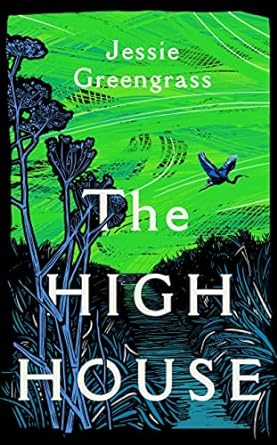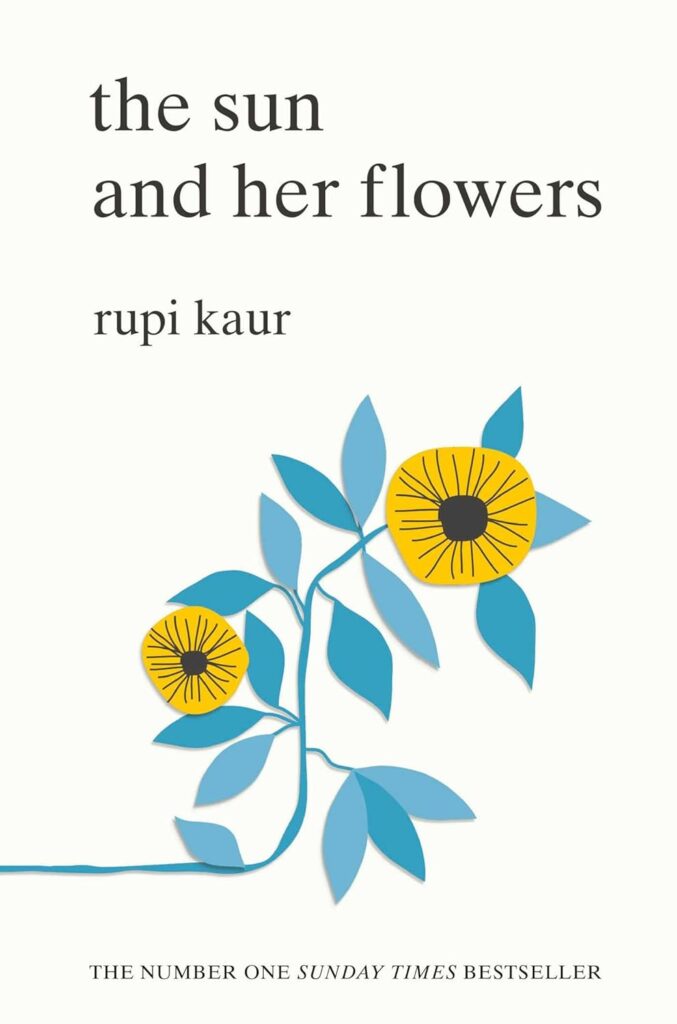This month’s read was a “cli-fi” novel by Jessie Greengrass. Set in the near future, it centred around the lives of Caro, Pauly, Sally, and Grandy in the ark-like High House. This is a bleak dystopian future when floods have covered much of the United Kingdom, and Greengrass creates a vivid picture of what happens when four disparate, desperate people are left at the end of the world.
The house of the title, once a holiday home, has been turned into a haven by Pauly’s climate scientist mother Francesca. The house is equipped with a vegetable garden, generator, tide pool, and orchard, as well as a stock of clothing (the latter including different sizes for the growing Pauly). Both Francesca and Caro’s father spent much of the first part of the novel warning of the coming disaster with Cassandra-like consequences, and leaving Caro to look after her stepbrother. When the storms inevitably hit and they are killed, Caro takes Pauly to the High House. There she meets Sally and her grandfather Grandy, the caretakers of this pseudo-ark, and the story jumps back and forth between the past and present.

The group mostly liked the book, as well as the writing style with its short chapters and different points of view. The voices of Sally and Caro seemed quite similar (despite being very different characters). Pauly’s commentary was very brief – and we discussed whether this was because he had had very little education, and wouldn’t have met many other people. Several readers felt sorry for Sally, who seemed to have had the caretaker role foisted on her. The figure of Grandy was the father figure and authority voice in the novel – a role Caro’s late father should have occupied. Grandy had seen previous floods, so was the font of knowledge for the household. When Sally realises how frail Grandy has become, it makes her feel vulnerable, and feel as though the house’s security is being eroded. Meanwhile Caro appears to have some (unnamed) mental health issues, which affect her ability to look after herself, let alone the growing Pauly. When she first arrives at High House, Caro retires to bed and leaves a confused Pauly in the care of complete strangers.
As a story of survival, the plot wasn’t entirely convincing. The anticipatory build up describing the events and the background for the characters was good, but the ending felt disappointingly anticlimactic. It seemed slightly bizarre that the High House had all these survival features, but that the motley inhabitants didn’t seem able to really look after themselves. Rather than learning the survival skills they needed for their future, they were using stockpiled resources. There was some mention of growing crops, but it didn’t sound sustainable, or that they were learning from experience. This made our group wonder whether Francesca’s original idea had been to keep the group isolated until they grew up – after all, Caro and Sally were teenagers at the start of the novel, and Pauly was just a child.
Some of the group commented how the book wasn’t as preachy as they had expected, and were impressed that it got the point across without being too patronising. There was definitely a slight sense of preaching at the converted, but this seems inescapable in this genre.

This May we have a bit of a change from our usual prose choice and will be dipping in and out of Rupi Kaur’s The Sun and her Flowers.
This is the second book of poems by the best selling writer and illustrator, and is a celebration of love, in all its forms. Rupi Kaur’s poetry collections have sold over 8 million copies, and been translated into over 40 languages. She is on Instagram and X/Twitter with 4.5 million followers, and over 260K followers, respectively.
If you want to come along to our next Reading Group, you’re welcome – we will be meeting at 1pm on Wednesday 22nd May. Copies of the book are available from the library, so pop in to get your copy. If you don’t fancy this month’s read, why not pop along and tell us about something you’ve read and loved?
If you are interested in anything else we’ve read, why not take a look at our other book reviews here? Or find out more about our Reading Groups here
